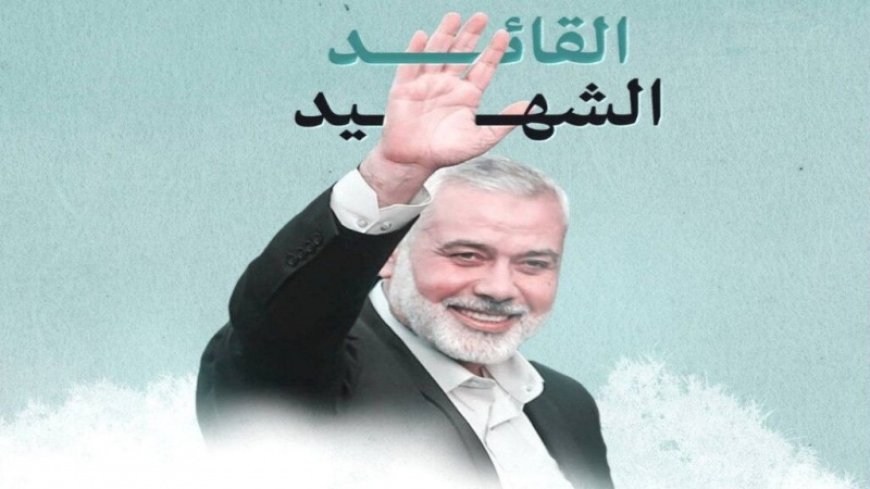Ismail Haniyeh: A Legacy of Resistance and Leadership
Ismail Haniyeh's assassination is a significant blow to Hamas and the Palestinian resistance movement. His life and legacy continue to inspire many in the struggle for Palestinian self-determination, and his death is likely to intensify the ongoing conflict in the region.

Ismail Haniyeh, known as Abu al-Abd, head of the political bureau of Hamas, was assassinated on Wednesday morning in his residence in Tehran. Haniyeh, who had arrived to attend the inauguration ceremony of Iranian President Masoud Al-Pezeshkian, was killed in a targeted attack, underscoring the heightened tensions in the Middle East.
Haniyeh, a prominent figure in the Palestinian resistance, gained global recognition following Operation Al-Aqsa Storm. His name was included on the Zionist regime's terrorist hit list, marking him as a key target.
Early Life and Education
Ismail Abdulsalam Ahmed Haniyeh was born in 1963 in the al-Shati refugee camp in the Gaza Strip. His family originally hailed from the village of al-Jura in the Ashkelon region, displaced during the 1948 Arab-Israeli conflict. Haniyeh received his primary and secondary education in UNRWA schools in Gaza. He completed high school at Al-Azhar Religious Seminary and went on to the Islamic University of Gaza in 1981, where he became actively involved in the university’s Islamic Association and student council, eventually becoming its president from 1985 to 1986. He earned a bachelor's degree in Arabic from the university's Faculty of Education.
Imprisonment and Exile
During the first intifada, Haniyeh participated in demonstrations and was imprisoned by the Israeli military court in 1989 for three years. After his release in 1992, he was deported to Lebanon along with 400 other senior Hamas leaders. The deportees spent over a year in Marj al-Zahour, southern Lebanon, where Hamas received significant media attention and international recognition.
Haniyeh returned to Gaza a year later and was appointed president of the Islamic University of Gaza. In 1997, he became the head of the Hamas politburo. He led Hamas to a victory in the 2006 Palestinian elections and served as the 10th Prime Minister of Palestine until 2007.
Personal Tragedies and Commitment
Haniyeh's life was marked by personal losses, particularly during the Israeli airstrikes on Gaza in April 2024, which claimed the lives of three of his sons and three grandsons. Despite these tragedies, Haniyeh remained steadfast in his resistance against Israel.
Key Statements and Ideology
Haniyeh was known for his resolute stance against recognizing Israel. Some of his notable statements include:
- "We will never, never, never recognize Israel."
- "Slingshots will never fall to the ground, fences will never break down, and by God's permission, no other positions will be imposed on us."
- "As prime minister, I am personally proud to be a member of the Islamic resistance movement Hamas."
- "General Soleimani is the martyr of Quds. We will continue the path of martyr Soleimani until the liberation of Palestine."
- "Al-Aqsa storm rekindles hopes for Quds liberation."
- "Iran is at the forefront of supporting the Palestinian cause and nation."
In a speech marking the 21st anniversary of Hamas's founding, Haniyeh famously declared: "Hey Bush, you're gone, but our slingshots are still in effect. You're gone, but our path continues."
Legacy and Global Connections
Haniyeh maintained significant international relationships, often meeting with key figures like Sheikh Ahmed Yassin, the founder of Hamas, Ziad al-Nakhal, Secretary General of the Palestinian Islamic Jihad, and Seyed Hassan Nasrallah, Secretary General of Hezbollah. He also had multiple meetings with Iranian Supreme Leader Ayatollah Khamenei and other high-ranking Iranian officials, reinforcing his strategic alliances.













































